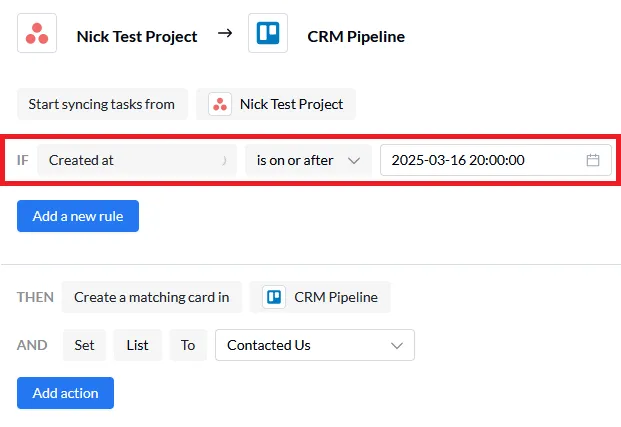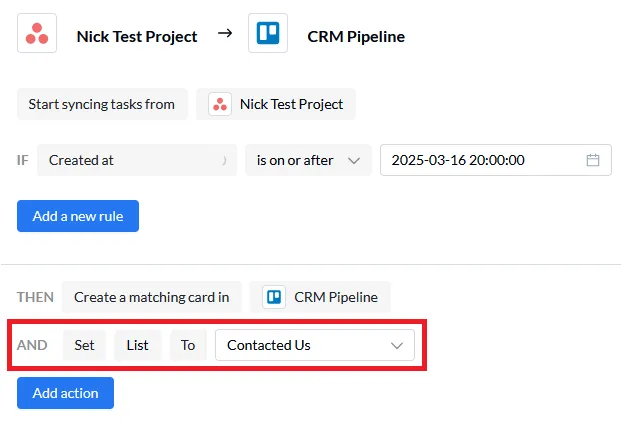Unito's Default Rules: What They Are and How They Work
When you create a new flow, Unito automatically includes default rules to help you get started. You can remove or configure these, but it’s important to know what they do.
The creation date rule
Section titled “The creation date rule”Unito flows are pre-populated with a creation date rule. This tells Unito to only sync work items created after a specific date. Older items won’t be synced. This rule allows you to test out your flow before syncing all the work items you want synced.

Remember that if you launch your flow with this rule unchanged, you’ll need to create new work items in your tools that satisfy the conditions in this rule for Unito to create a matching work item.
The section rule
Section titled “The section rule”With this rule, Unito will automatically create new work items in a specific section of the destination tool. For example, if you’re syncing data from Smartsheet to Jira, a default rule will automatically send newly-created Jira issues to a specific issue status (or column if using a Kanban board).
This rule can be customized to change the section new work items will be automatically sent to.

Beyond these default rules, you can set a number of rules that automatically set certain fields in work items that Unito creates. You can learn more about setting these rules in this guide.